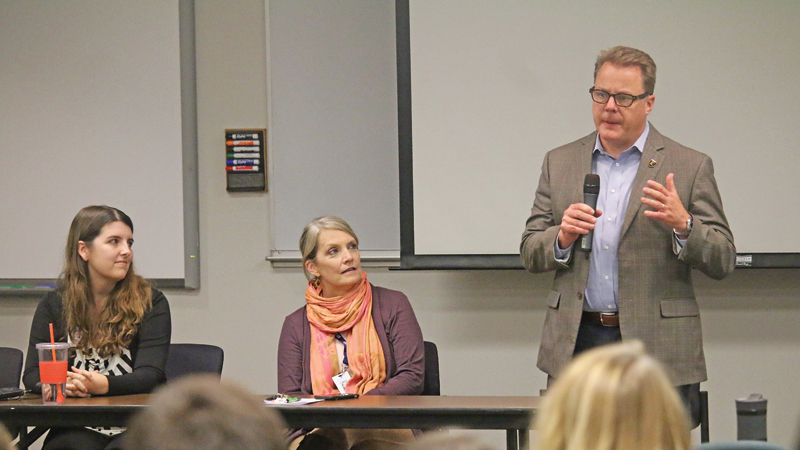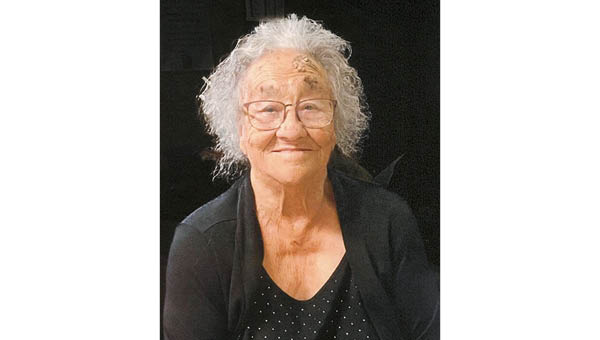ETSU student groups host opioid epidemic panel
Published 7:57 am Wednesday, October 18, 2017

- Star Photo/Curtis Carden Dr. Robert Pack, far right, with ETSU's College of Public health, addresses students during Friday's opioid discussion. Joining Pack as panelists were Dr. Angela Clements, middle, and Dr. Karilynn Dowling
Future health professionals of Northeast Tennessee spent Tuesday looking at ways at combating an epidemic affecting the United States.
Various student groups from East Tennessee State University’s Quillen College of Medicine hosted an interdisciplinary panel discussion inside Stanton Gerber Hall on the VA campus Tuesday to address different topics related to opioid abuse affecting the country, especially the state of Tennessee.
Tuesday’s event one of several opioid-related events taking place at the medical school as part of National Medical Student Advocacy Week.
Sponsored by the American Medical Association Medical Student Section, college students across the country were able to receive kits on how to properly tackle different issues, with opioid abuse being the central topic of this year.
Elizabeth Farabee, a first-year medical student and organizer of the event, said the AMA group on campus, along with other organizations, including Tennessee Medical Association One students, decided to take an interprofessional-focus to the kit provided, providing a panel for students to ask questions and how to come help with an initiative to help come with ideas and learn about current programs in place to address opioid abuse.
Officials from the Tennessee Department of Health (TDH) recently visited Carter County and unveiled the latest statistics provided by a new Drug Overdose Database, detailing updated numbers on opioid overdoses and prescriptions in each county.
“The numbers are staggering,” Jilian Reece, Carter County Drug Prevention Coalition director, recently told the Elizabethton Star.
According to information comprised by the TDH, Carter County, with a population of 56,502, saw 84,485 painkillers prescribed to citizens (1,495 for every 1000 individuals) in 2016 while 19 residents lost their lives to drug overdose.
Information for the county showed from 2012-16 indicated all drug overdose deaths rose from 10 to 19 over a five-year period while opioid overdoses grew from five in ’12 to double digits, 14, last year.
During the evening Dr. Robert Pack, with ETSU’s College of Public Health; Dr. Angela Clements, with ETSU’s Department of Psychology; Dr. Karilynn Dowling, with ETSU’s Bill Gatton College of Pharmacy; and Dr. Timothy Smyth, with Overmountain Recovery, served as panelists and went over a variety of topics with students.
Farabee added it was essential to showcase the different professionals within the community with so much focus being implemented to tackle the issues.
The organizer added the student groups will conclude the week with Naloxone training, a tool used to help individuals that are suffering from an opioid overdose.
To help combat the issue, Farabee added the best way for the public to get involved is to learn more about the issue, working alongside advocacy groups – like Carter County Drug Prevention Coalition.





